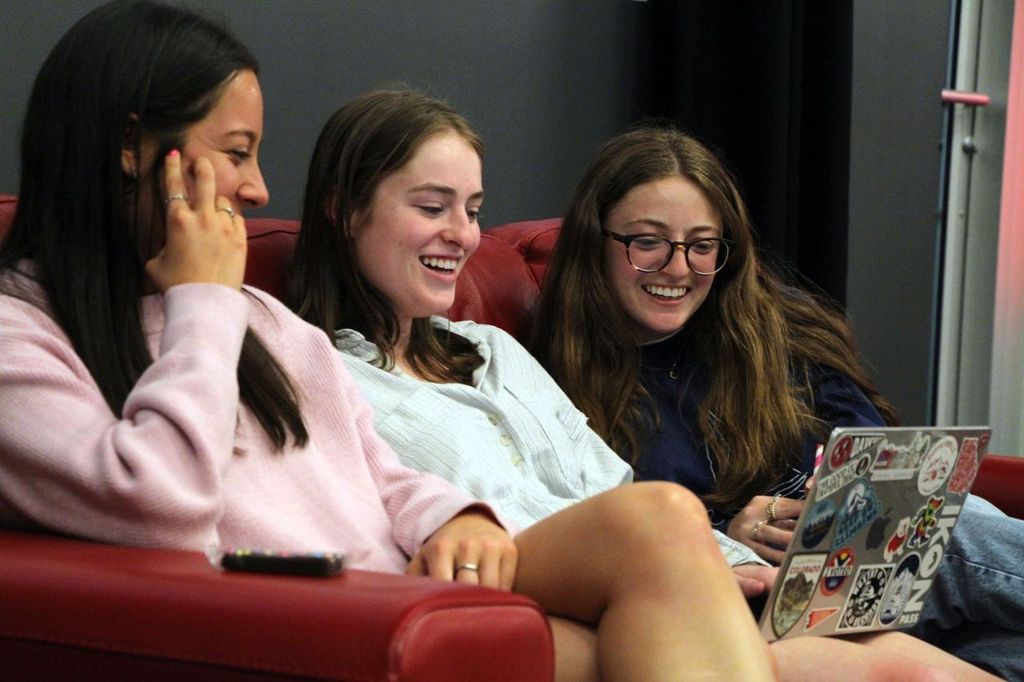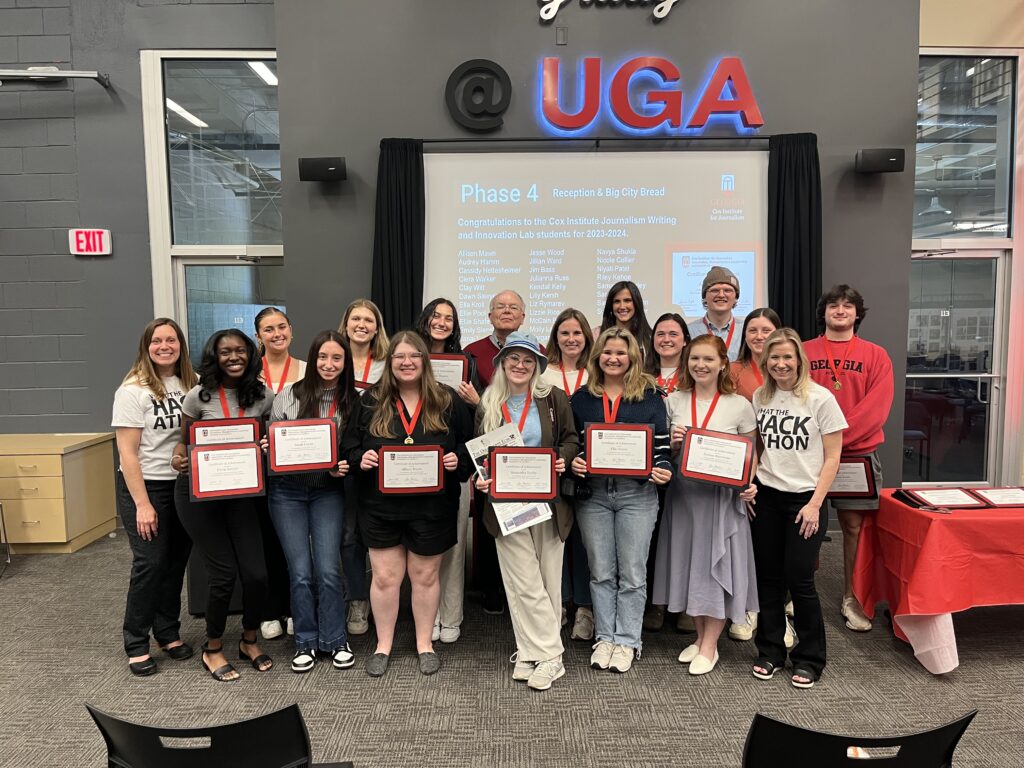Students combat election misinformation at What the Hackathon

Students combat election misinformation at What the Hackathon
As the U.S. continues through another election cycle, University of Georgia students learned how to identify and combat election-related misinformation at the spring 2024 What the Hackathon. The event was sponsored by the What the Hack podcast, hosted by Adam Levin.
Students learned how fake online content deepens political divisions while eroding trust in democracies as they played trivia, completed a misinformation simulation and heard from Dan Richardson. Richardson works in The Carter Center’s Digital Threats to Democracy Initiative, which fights misinformation through media literacy programs and social media monitoring.

The Cox Institute’s directors, Amanda Bright, Keith Herndon and Lori Johnston, ran the event. What the Hackathons are hosted every semester as part of the Institute’s mission to train students in news literacy.
“Being savvy about information disorder is challenging enough in normal times, but during election season, we have to be even more vigilant,” Bright said. “What the Hackathon exposed students to three of the main techniques used in election disinformation — emotional appeals, bandwagoning and conspiracy theories — so they can be both on their guard and proactive within their respective spheres of influence.”
Along with learning to be on the lookout for fake information, students learned how to determine if something is real, especially when content is political.
“Even politicians, almost all of them, are contributing to these types of information disorders during their campaigns,” journalism major Georgia Hartley said. “It’s incredibly important that the public is informed about these types of information disorders so they can make informed decisions during the election cycles and in life in general.”
The Institute also offers a Certificate in News Literacy that hones students’ skills in discerning credible information and information disorder through critical examination of how people access, analyze, verify, create and share media messages — with an emphasis on news. The certificate is open to all students enrolled at UGA.
After the What the Hackathon, students in the Journalism Writing and Innovation Labs during the 2023-2024 school year were honored with a reception.
“We were thrilled to celebrate these talented students and the meaningful work they produced this year for media outlets and newsrooms in our community, in Georgia and beyond,” Johnston said.
Journalism Writing and Innovation Labs, 2023-2024
- Allison Mawn
- Audrey Hamm
- Cassidy Hettesheimer
- Ciera Walker
- Clay Witt
- Dawn Sawyer
- Ella Kroll
- Ellie Pool
- Ellie Shafer
- Emily Slepsky
- Janai Wells
- Jesse Wood
- Jillian Ward
- Jim Bass
- Julianna Russ
- Kendall Kelly
- Lilly Kersh
- Liz Rymarev
- Lizzie Rice
- McCain Bracewell
- Molly Langdon
- Morgan Hardy
- Navya Shukla
- Nicole Collier
- Niyati Patel
- Riley Kehoe
- Samantha Hurley
- Sarah Coyne
- Sarah Fredrickson
- Sydney Rainwater
- Torin Smith
- Trevyn Gray
Author: Jacqueline GaNun